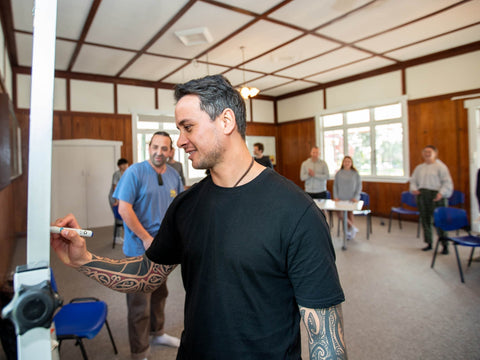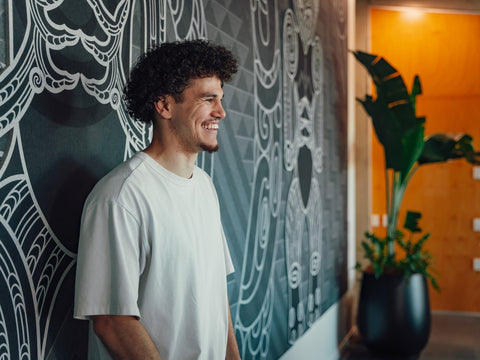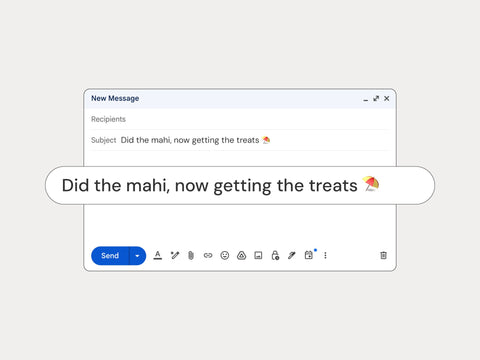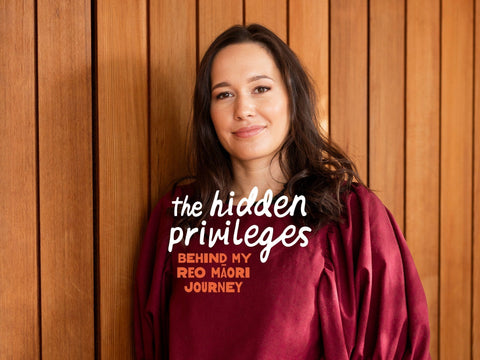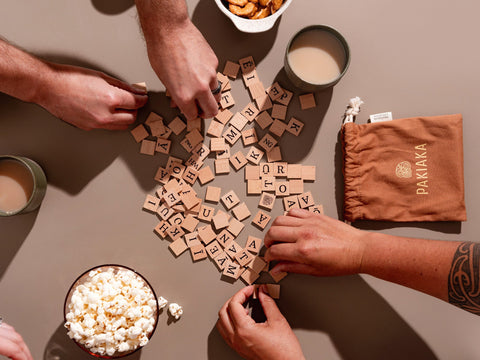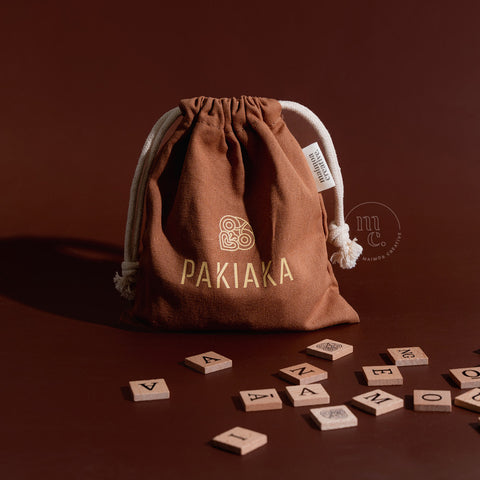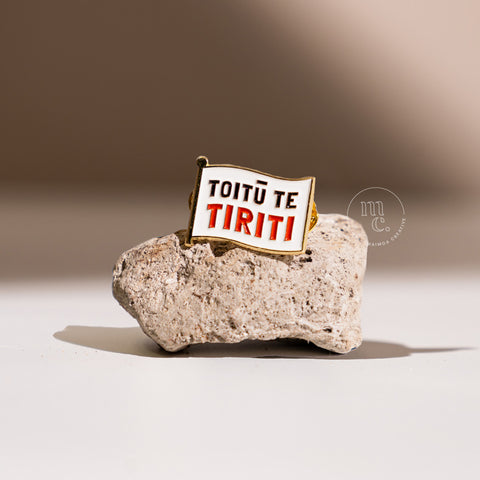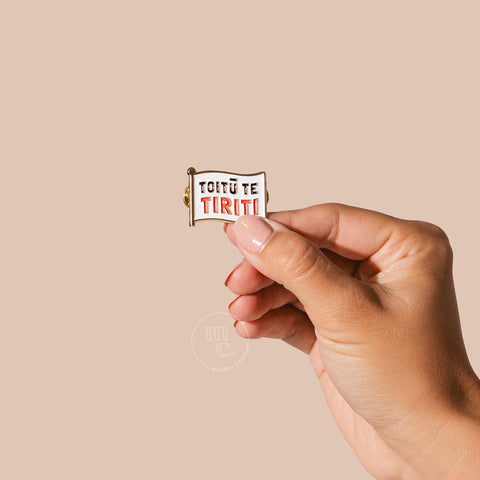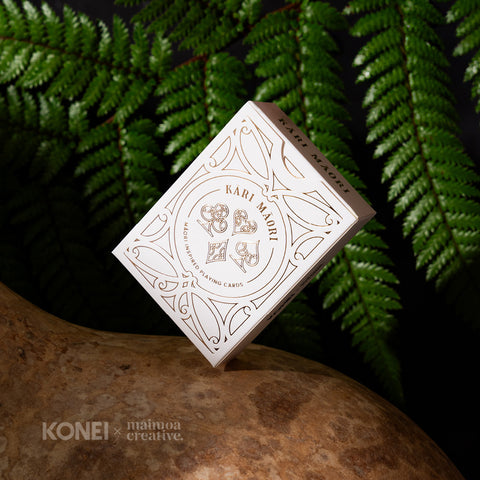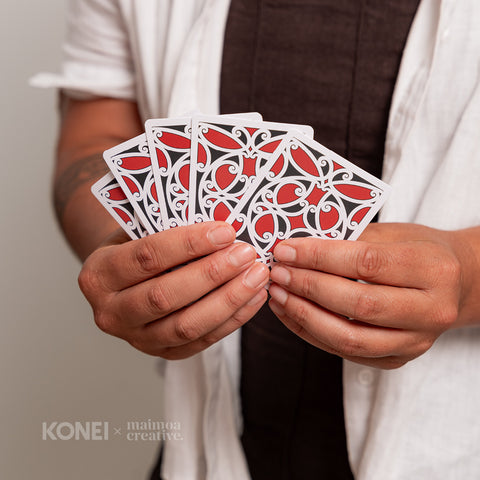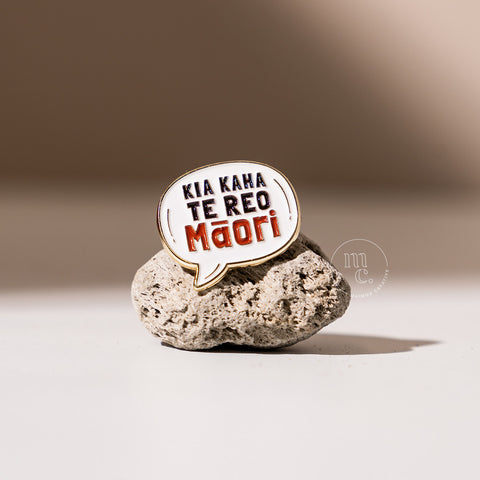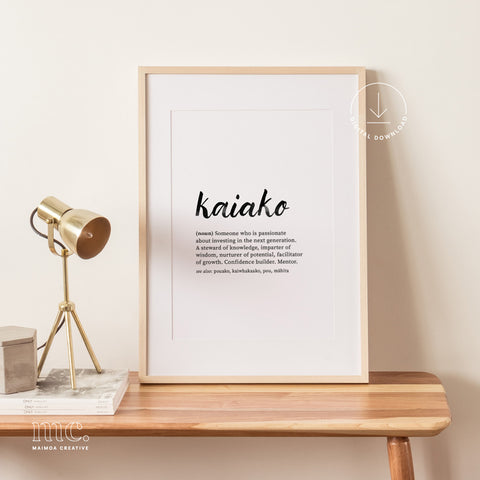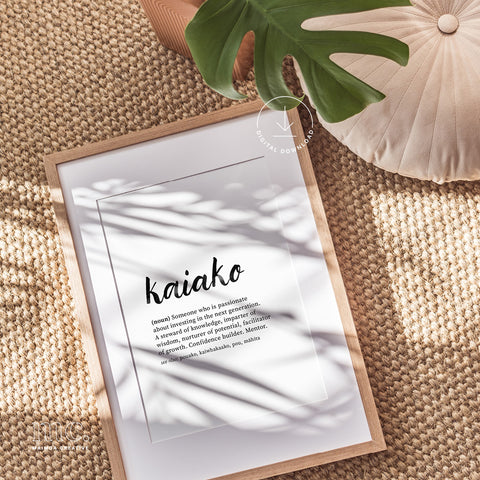Photography credit: Te Wānanga Ihorangi
I am such a huge advocate for full-immersion learning. My first experience in this method of language learning was when I moved to Belgium for a year after studying French throughout high school. The first few weeks my brain felt like it was going to explode, but after about six months of living with host families who spoke minimal English and attending a French school, I was dreaming in French. By the end of the year my fluency had me mistaken for a local. It was, unequivocally, the most effective way to learn a language.
With a goal to learn Māori following my Graphic Design degree, I was certain that a rumaki (full-immersion) course was my best option. Although it was quite different from living abroad and absorbing a language through daily immersion in every day contexts, it was the closest I could get to learning my native tongue in a similar immersive environment. I wasn't prepared for the intense emotional journey that came with not just learning the language, but reclaiming it.
This article serves two purposes: First, to reassure you that any apprehensions you may have about starting or continuing a full immersion reo Māori course are valid and are shared by many, and second, to offer survival tips drawn from the experiences of past learners.

The First Steps: Facing Your Fears
Full-immersion learning is often described as "intensive," with "heavy workloads" and "no English" — it demands resilience and dedication. I don’t think I’ve ever met anyone who WASN’T nervous before starting their full-immersion programme. It’s very natural to experience a range of emotions leading up to it. The first day of my one year full-immersion course (Te Tohu Paetahi, University of Waikato, 2015) I felt exposed by my very humble set of vocabulary and questionable pronunciation. I quickly noticed after introductions that a few classmates already had a good foundational knowledge of the basics, and could already speak quite confidently. I felt betrayed. Like—I thought we were all beginners?! 😅 But everyone has different reasons for entering full-immersion—some to polish their existing reo skills and confidence. For others, like me, to learn everything. From scratch. Despite the programme starting from the basics, the pace moved quickly and I had to work my nono off to keep up for the first term. By then, there was a bit more balance between learners and I didn't feel as behind.
Below are some common concerns shared by followers from our Instagram survey to reassure you that you are not alone in your apprehension about starting this intense learning journey:
- Not having enough of a base level
- Feeling lost and not being able to keep up in class
- Not doing it with someone they know
- Feeling way out of their comfort zone
- Fear of public speaking
- Sacrificing income while learning
Sometimes, the anxiety leading up to the first day can be so daunting that it's enough to make people abandon ship before they even set sail. Nobody is saying that these fears are easy to overcome, but what I do want to share in this article are a few tips on how to make the year not just more bearable, but actually enjoyable.
Survival Tips for the Year

1. Go All In
Give as much of yourself and your energy as you possibly can to this year and to your development. It’s a huge sacrifice, and it means some other things will need to be put on hold, but it will make the effort so much more valuable and effective. Don’t just do the bare minimum, but make yours and your kaiako’s time worth it by actively engaging in class in stead of just being a bystander.
Structure your time not only for classes but for additional study and practice. Be intentional and dedicate time to be able to consolidate what you have learnt, complete any homework that is given during the week, practice for speeches and assessments, and catch up on notes.

2. Find Your Crew
Establish connections outside the classroom with people who can support your learning and be an additional safe space for practicing conversation in te reo.
Don’t be whakamā to seek support from whānau and close friends for things that will help lighten the burden outside of class, such as childcare, household chores, financial assistance, or meal prep. True supporters will feel honoured to support you on your journey, contributing in any capacity they have to offer.

3. Focus on Communication, Not Perfection.
Don't get too hung up on the little details. Yes, learning correct grammar is important, but it's better to get to the end of the year more confident to just kōrero in front of people than be a flash writer who gets tongue tied when it comes to speaking. “Nobody will drop dead if you get it wrong in class. Don’t attach your self-worth to grammar!” shared a past student.

4. Be Kind To Yourself
If your expectations of yourself are too unrealistic, then you will often find yourself disappointed instead of focussing on what you have achieved. A past student shared, “Don’t compare yourself to the others in your class. This can be very destructive,” while another one shared “Be okay with not being okay! Trust the process.”
"Be kind to yourself" isn't just referring to your taha hinegaro (mental health and emotions), but also includes your taha wairua (spiritual health), taha tinana (physical health), and taha whānau (social wellbeing). Nurturing all aspects of Te Whare Tapa Whā will help you be a better learner by enhancing your cognitive functions, overall energy levels, and sense of purpose and fulfilment in this season.

5. Ask That Dumb Pātai
Don't be afraid to ask what might feel like a trivial pātai in class or one-on-one with the kaiako. That's what a learning environment is for, to ask all those burning pātai that we feel too stupid to ask in everyday contexts. One past learner shared, “Patua te whakamā! But also know when to be humble - it can be emotional for many”
Not only is it okay to make mistakes, it is INEVITABLE when learning a language. It shows you’re challenging yourself and actively engaging. Your classroom should be a safe space for this exploration.

6. Remember Your Why
Regularly reminding yourself of the reason you started can help guide your waka through unsettling seas. Your why is what made you sign up to the programme in the first place—that in itself shows how powerful it is. A past student shared, “It will be the best investment you ever made for your children”.

7. Kaua E Mate Wheke 🐙
Don't be too quick to throw the towel in when it gets tough. "Full immersion was so easy," said nobody. Ever. While embracing the spirit of 'mate ururoa'—persisting with determination and strength—is key in a full immersion environment, it's equally important to recognise your limits. The phrase 'mate ururoa' has a more literal translation of 'fight to the death like a hammerhead shark,' but within this particular context I would contest this and suggest that if the learning environment becomes too overwhelming or lacks support, it’s wise to reassess your commitment rather than push through to the point of trauma and exhaustion by year's end. Ideally, you'll be able to distinguish between unhealthy or toxic learning experiences and the typical challenges that come with being a learner.
—
In embracing full immersion, harness the collective strength and wisdom of those who have walked this path before you, be guided by your tūpuna, and look forward to the life-changing impact your learning will have on your life, whānau, and future generations 🖤


